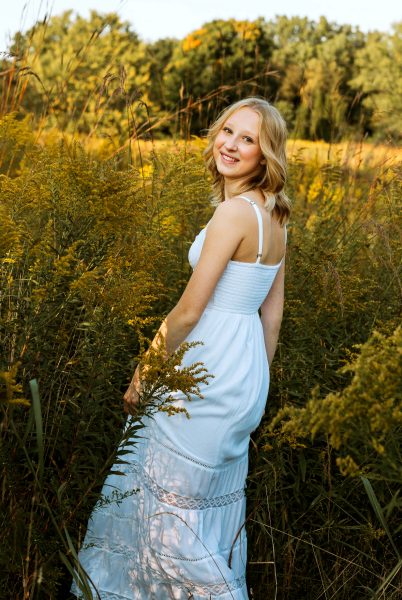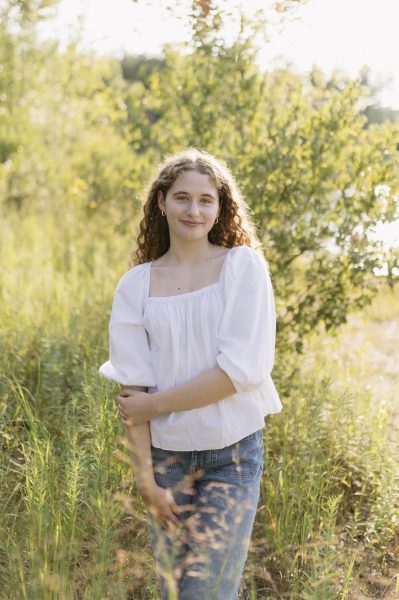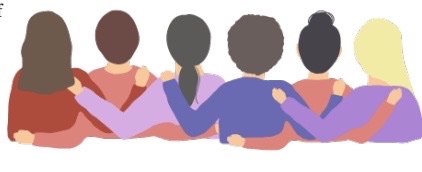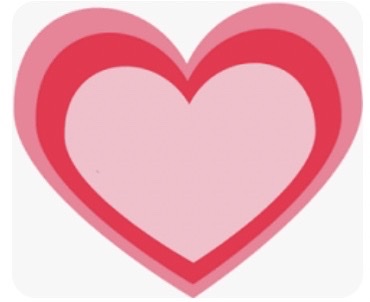Where Is the Line Between Jokes and Racism?
Learning to Figure Out What Is Appropriate To Say, and What Is Not
Red in the face, a cold sweat building up, I sat bracing myself for the synchronized stare from my class after the joke would land or conversation that took an uncomfortable turn.
Every year as we got older, learned our lesson, and became more aware, I expected it to resolve itself but every year the wound opens more and more until eventually; it consumes me.
As an Arab American with big curly hair in a town of white girls with pin-straight blonde hair, I have always stuck out. Being different is every kid’s worst fear, or at least my worst fear. That fear was instilled in me due to the fact that the other kids never got the unwanted hair petting or the “What kind of name is that? ” questions.
The other kids did not get the terrorist jokes or the pictures drawn of them holding a bomb. I wasn’t like the other kids. I was different, and because I was different, all of these microaggressions were my reality.
When I talk to my white friends, they have never had to decide whether or not to laugh at something or to be offended. I did.
From middle school on, these decisions became an everyday occurrence. “Were they jokes or were they racist jabs? ” I thought to myself. “Surely my teachers and classmates wouldn’t be racist towards me. ” Was the 15 seconds of laughs worth the burning feeling in my gut I got when I let the comments pass as a joke? “Would people think I was “soft” if I spoke up? ” “If I just laugh, will they stop staring at me? ” As I grew up, I realized jokes aren’t jokes if they hurt.
As “dark humor” rises in popularity these questions tend to cross my mind often. The Urban Dictionary defines dark humor as, “a form of humor involving a twist or joke making the joke seen as offensive, harsh, horrid. ” The sole purpose of a joke is to make people laugh: laughing is supposed to make a person feel good, not ashamed.
In my past, I have been on the other side of these jokes. Saying these hurtful jokes about my own culture and other minority groups was my main personality trait for years. This was not a sustainable way of expressing myself. I have grown tremendously over the past couple of years, I have learned and changed. As a once avid teller of these “dark” jokes, I can say they don’t do anything but hurt in the long run. Especially since I have had these jokes told to me so I have a firsthand experience of the hurt that comes from being the joke.
My culture has been the center of these outlandish jokes for years. I have found myself making self-deprecating jokes just to fit in with what the others are saying. September often cultivates these jokes with the anniversary of 9/11. Each time these hurtful, racist comments are spoken or written, I become more and more private about my cultural identity.
But there is still a raging voice inside me that wants to be the proud Arab girl my parents immigrated here for me to be.
I want nothing more than to be that girl. But I can’t: I’ve grown up with these comments surrounding me, and to be completely honest, I’m scared to be that girl. The burning in my gut that rushes through me when these comments are made scare me. This feeling silences me. Going to school, a place I am supposed to feel safe, hearing these comments, reading them online, and even watching certain videos and movies and hearing these comments results in pain and discomfort.
Jokes aren’t jokes if they hurt; if you can’t tell a “joke” without putting someone down you shouldn’t be telling a joke. I’m no longer afraid of being called “soft” for not putting up with racism.
The racism I’ve experienced in this community from students, parents, and even teachers wasn’t just a joke. As a 17-year- old, I’ve made countless mistakes reinforcing bad behavior and retelling the same jokes targeting myself and others: trying to fit in is no excuse. There are limits and we need to recognize them. We have gotten to the point where racism passing as jokes is normalized which scares me to my core.
Because of the normalization of “dark humor, ” it’s hard to believe that these comments will ever become socially unacceptable, even with our generation being considered “woke” by many. Still, my classmates and others around me repeatedly chase the shock factor of a joke because being funny and entertaining is just not enough.
Over time I’ve grown to accept my own reality in this community that I was different. But, it is those same differences that give me the platform to make a difference. I shudder with fear and discomfort just imagining other children having to experience the choked-up laughs and painful smiles that come from being the joke. I’ve seen them look me in the eyes and ask me where I was on 9/11 or ask me where my hijab is. I’ve seen them draw pictures of me holding the bombs and grin afterward.
These were not jokes. My culture is not something for you to pick on to appear cool to your friends. I am not a joke.








